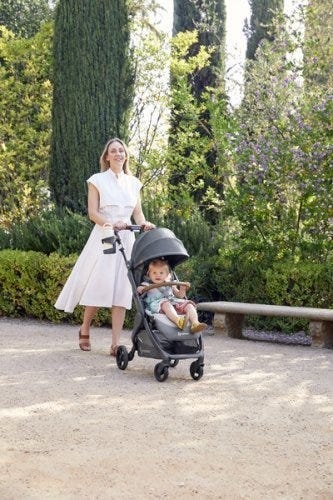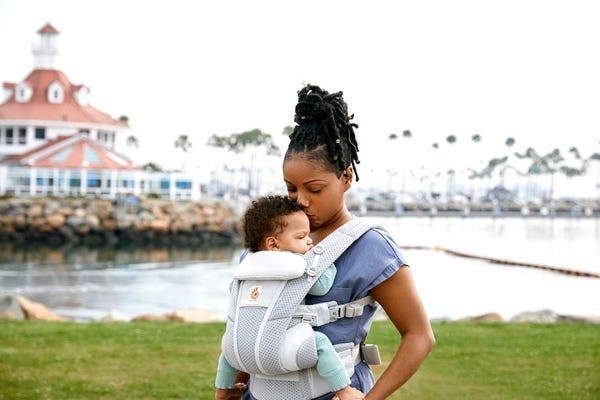The five subthemes are : Globalisation, Listening to Women and their Partners, The Continuum of Care, Strengthening Midwives and Midwifery Practice, and Culture, Society and Traditions. Globalization This sub-theme covers opportunities for midwives from all over the world to support and encourage one another through collaboration and the sharing of experiences, both similar and different. This sub-theme will highlight human resource issues and migration of midwives, developing sustainable women and child health care programmes particularly in middle and low income settings, and explore the impact of HIV/AIDS on midwifery services. Listening to women and their partners This sub-theme focuses on the voices of women and their partners in reproductive health and learning from these perspectives and expectations. It includes issues of communication, emotional support and the role of support/network groups in maternity care. It also incorporates the critical issue of human rights – protecting the wellbeing of vulnerable children, young people and women particularly in relation to gender based violence and their legal status. Continuum of Care This sub-theme is concerned with enhancing the provision of family-focused care. It follows the reproductive health continuum covering midwifery practice from pre-conception, through birth to infancy, across all reproductive age ranges including the adolescent, in various patterns of family organisation, and across all settings from home to critical care. It will also highlight the need for transformation of health systems in relation to women, children and neonates so that the challenges to maternal and neonatal health, morbidity and mortality are addressed. Strengthening Midwives and Midwifery This sub-theme addresses issues specific to enabling midwives so that they can develop strength in their professional identity and practice. This will include formal and non-formal education, innovation and application of midwifery research, effective leadership and the development of enabling environments, the place of midwives in the structure and governance of the profession within health systems, financing of midwifery provision, and ethical challenges facing midwives as a result of technological advances and changing health profiles. Culture, Society and Tradition ‘Ubuntu’ is a southern African philosophy which expresses itself as ‘we are / become who we are through other people’. In recognising our common humanity and the richness of our diversity this sub-theme will highlight the importance of societal and indigenous knowledge impacting in care of childbearing families cultural beliefs and customs (both traditional and western) and how they impact positively and/or negatively on maternity care and gender issues. It also covers the role of non-midwives in the provision of maternity care. Languages The ICM has 3 official languages - English, French and Spanish - and presenters have been invited to indicate in which language they would like to present. All sessions in Halls 5 & 6 will have simultaneous translation throughout the congress. Some of these sessions will be presented in French and Spanish. Please refer to the programme for information about the sessions, so that you make sure to pick up a translation unit before entering the venue, should you require this translation facility. Presentation types There will be various types of presentations during the congress, listed below. Please see link for full descriptions: http://www.midwives2011.org/Congress/Programme.aspx
- Keynote addresses
- Concurrent sessions
- Workshops
- Symposiums
- Poster presentations
Disclaimer “It is possible that some parts of the program will have to be changed and the scientific committee reserves the right to do this. Please refer to update on the plasma screens and noticeboards.”
Emotional Benefits of Getting Outside
Spending time in nature with your baby can strengthen the bond between you. The simple act of holding your baby close, feeling their warmth, and sharing new experiences together can create strong emotional connections. It’s also a wonderful way to reduce stress and improve your mood. When my littles were extra fussy, I’d take a walk around the neighborhood. Even though I don't live in an area with trails and surrounded by nature, simply behind outside changed everything. A little vitamin D does wonders!
Cognitive Development
Nature is a sensory wonderland for babies. The different sights, sounds, and smells can stimulate your baby’s senses and promote cognitive development. Watching leaves rustle, hearing birds chirp, and feeling the texture of a tree bark can all contribute to their learning and development.
All About Baby Carriers for Nature Adventures
Choosing the Right Baby Carrier
When it comes to selecting the best baby carrier for summer adventures, there are several options to consider.
Types of Baby Carriers:
- Wraps: Perfect for newborns, providing a snug and secure fit.
- Slings: Ideal for quick and easy use, offering good ventilation.
- Soft Structured Carriers: Versatile and comfortable for both parent and baby, suitable for longer trips.
Factors to Consider:
- Baby’s Age and Weight: Ensure the carrier is appropriate for your baby’s size and weight. For example, Ergobaby’s Embrace Newborn Carrier is perfect for the fourth trimester where baby is small and you’re looking for an easy way to stay close. As they grow, you’ll want to upgrade to an all-position carrier that’s meant for growing babies.
- Parent’s Comfort and Ergonomics: Look for carriers with padded shoulder straps and lumbar support if you’re planning on longer outings.
- Ease of Use: Choose a carrier that is easy to put on and take off.
- Climate and Breathability: Opt for carriers made of breathable fabrics to keep you and your baby cool in hot weather.
Safety Tips:
- Proper Positioning: Ensure your baby is seated correctly, with their legs in an "M" position and their head should be close enough to kiss.
- Checking for Wear and Tear: Regularly inspect your carrier for any signs of damage.
- Ensuring Adequate Support: Make sure the carrier provides proper support for your baby’s head and neck.
Exploring Nature with a Baby Carrier
Ideal Spots for a Nature Walk with Baby
- Parks and Gardens: Great for leisurely walks and picnics.
- Nature Trails and Forests: Perfect for more adventurous outings.
- Beaches and Lakesides: Wonderful for enjoying the water and sand, with the right carrier.
Activity Ideas
- Hiking: Enjoy a scenic hike with a hiking baby carrier that offers support and storage.
- Bird Watching: Use your carrier to keep your baby close while you explore and observe wildlife.
- Picnics: A carrier can free up your hands, making it easier to carry picnic supplies.


Advantages of Using Strollers for Nature Adventures


While baby carriers are fantastic for mobility and closeness, depending on the adventure of choice you might want to be a stroller along too.
There are a LOT of baby stroller options on the market. So we understand how confusing it can be to choose the one that’s right for your family. Not only are there a variety of brands, but a variety of strollers that serve different purposes.
There are a few types of strollers on the market:
- Full-sized stroller: This is typically the stroller parents thing of buying for all its versatility.
- Lightweight or umbrella stroller:These compact strollers are perfect for on-the-go adventures.
- Jogging stroller: Designed for parents who want to combine fitness with outdoor adventures.
- Double stroller: Designed for parents with multiple kids, especially twins.
- Car seat carrier: These strollers connect to a specific car seat. We don't typically recommend these as they can be unsafe for baby and uncomfortable for parents who are pushing.
Learn more about the types of strollers and which one would be best for you.
Benefits of Bringing a Stroller
- Storage Space for Gear: Ample room for carrying all your essentials like a diaper bag, beach toys and more.
- Shade and Weather Protection: Built-in canopies to shield your baby from the sun when they are lounging.
- Options: If you have more than one kid, you can stroll with one and carry the other. Or, if you’re getting warm or your little one is getting fussy, you can switch up their position from stroller to carrier or vice versa.
Safety Tips for Strollers
- Ensure your stroller is in good working condition. Make sure buckles are still buckling and that there are no rips or holes that could compromise your baby’s safety.
- Use sunshades or bug nets to protect your little one’s skin.
- Securing the baby properly: always buckle up your baby for safety even if you think they are old enough to go without the buckle.
Combining Baby Carriers and Strollers
For the ultimate flexibility, consider using both a baby carrier and a stroller on your outings.
Combining both options allows you to adapt to different situations. Use the carrier for more rugged trails and switch to the stroller for smoother paths or when your baby needs a nap.
Transition Tips
- Smooth Transitions: Plan stops where you can easily switch from carrier to stroller.
- Pack Light: Only bring essentials to make transitions easier.
Tips for a Successful Adventure
Planning Ahead
- Route Planning: Choose baby-friendly trails and parks. Check local mom groups or outdoor groups and get recommendations for the best outings for kids.
- Check Weather Conditions: Avoid extreme heat or unpredictable weather. Even with our most breathable carriers, when it’s hot, it’s hot. And having two bodies against each other in the heat will be naturally hot and sticky already.
- Packing Checklist: Include diapers, snacks, water, sunscreen, and a first-aid kit. These all-position carriers have storage pockets where you can fit some of the items easily!
- Stay Hydrated and Nourished: Pack healthy snacks to keep energy levels up and bring plenty of water for both you and baby.


Summer adventures with your baby are a wonderful way to create lasting memories and enjoy the beauty of nature together. From baby carriers to strollers, Ergobaby products are designed to provide comfort and ease for both you and your little one. So, gear up, get outside, and explore the world with your baby by your side.
Ready to embark on your own summer adventures? Check out Ergobaby’s range of baby carriers and strollers to find the perfect match for your family’s needs. Visit our website today and start planning your next outdoor excursion!



























